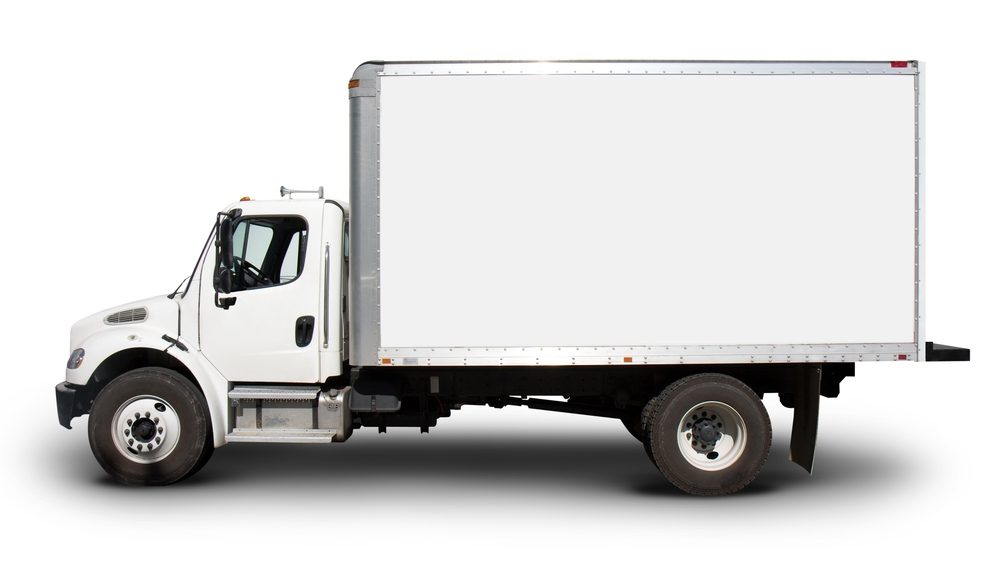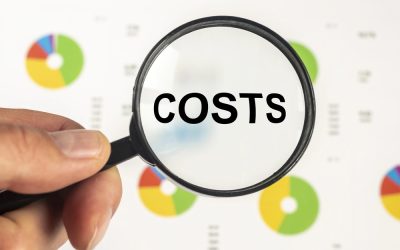Leasing trucks or equipment provides an affordable way to get what you need without putting up a ton of cash. There are many truck leasing companies out there – Ryder, Penske and KrisWay to name a few – each is in the business of buying trucks, structuring leases, and maintaining the vehicles for you.
A typical lease includes a base monthly charge, and a flat cents-per-mile charge to cover maintenance. Costs will vary, but let’s say a typical 20 foot box truck with a lift gate goes for $2,000/month with a charge of 8.5 cents per mile for maintenance. The term of the lease will vary as well, but let’s use a 7year, or 84 month lease in this example.
If you use the truck the full 84 months, and drive the vehicle a total of 200,000 miles, your total costs for the truck will be $185,000. This works out to $168,000 in lease payments and $17,000 in maintenance costs on the vehicle.
The benefit of the lease arrangement is that you’ll know the exact monthly base fee ($2,000/month) and you won’t have to worry about maintenance, break-downs or issues with the truck – the cents-per-mile maintenance fee will cover any of those hassles. At the end of the lease you turn in the truck, and lease a new one.
Now, let’s compare this to a purchase arrangement. Let’s say a similar truck as in the above example costs $95,000 to buy. If you finance the purchase amount over 7 years (same as the lease term above) at a 5% interest rate, your monthly payments will be $1,350. The total payments over the life of the loan will be just short of $113,000.
Most lenders are going to ask you to put down 20% of the purchase price, so in this example you may need to fork over 20% of $95,000 or $19,000. If you don’t have that kind of cash, a purchase may not be a good option.
The maintenance costs on the vehicle will be up to you. With a lease, you may get a fixed cents-per-mile cost which covers maintenance. However, with a purchase option, any repairs will be your responsibility. What will this cost? It’s the biggest variable in the lease vs. buy question. To answer it, look back on your historical costs of maintenance. Determine how much have you spent on repairs and maintenance and how many miles you have driven. Divide your total cost by total miles, and that will give you a good estimate of expected maintenance costs per mile.
Let’s say your total repairs and maintenance on the truck fleet was $20,000 over the last 3 years and total mileage driven was 200,000. This works out to an average of 10 cents per mile. Compare your historical cost per mile, to the contractual lease cents-per-mile charge. Estimate the total expected fleet mileage over the lease term and do the math to determine the better deal. Remember, your historical costs are an estimate and future costs could be more or less. The cents-per-mile charge in your lease contract is typically fixed, and won’t fluctuate much, if at all, over the term.
Lastly, in an ownership scenario, you own the vehicle. As such, you can trade it in or sell it when you no longer need it, or want to upgrade to a new truck. You have built up equity in the truck which is yours to benefit from.
Decisions, decisions, and so many factors to consider. Do the research and understand the terms and conditions of a lease scenario. Talk to others in the industry and ask how they handle their fleet – do they lease or buy? What has their experience been? What do they recommend?
It’s not rocket science, but it is an important and expensive decision for your company. Choose wisely grasshopper, and keep on truckin’.
This article presents guidance in words. If you want to cut straight to the numbers (as I would) check out the lease-buy decision-making spreadsheet. There are few things in life that I love more than a good spreadsheet. This is a good spreadsheet.





